 Mysteries
Mysteries  Mysteries
Mysteries  History
History 10 Surprising Stories About the Texas Rangers
 Humans
Humans 10 Philosophers Who Were Driven Mad by Their Own Theories
 Miscellaneous
Miscellaneous 10 Video-Game-Worthy Weapons and Armors from History
 Weird Stuff
Weird Stuff 10 Psychics Who Accurately Predicted Wartime Events
 The Arts
The Arts 10 Pieces of Art Inspired by a Broken Heart
 Health
Health 10 Science Fiction-Sounding New Medical Treatments
 History
History 10 Surprising Facts About the Father of Submarine Warfare
 Space
Space Ten Astonishing New Insights into Alien Worlds
 Weird Stuff
Weird Stuff 10 Bizarre Summer Solstice Rituals Still Practiced Today
 Mysteries
Mysteries Top 10 Haunting Facts About the Ghost Ship MV Alta
 History
History 10 Surprising Stories About the Texas Rangers
 Humans
Humans 10 Philosophers Who Were Driven Mad by Their Own Theories
Who's Behind Listverse?

Jamie Frater
Head Editor
Jamie founded Listverse due to an insatiable desire to share fascinating, obscure, and bizarre facts. He has been a guest speaker on numerous national radio and television stations and is a five time published author.
More About Us Miscellaneous
Miscellaneous 10 Video-Game-Worthy Weapons and Armors from History
 Weird Stuff
Weird Stuff 10 Psychics Who Accurately Predicted Wartime Events
 The Arts
The Arts 10 Pieces of Art Inspired by a Broken Heart
 Health
Health 10 Science Fiction-Sounding New Medical Treatments
 History
History 10 Surprising Facts About the Father of Submarine Warfare
 Space
Space Ten Astonishing New Insights into Alien Worlds
 Weird Stuff
Weird Stuff 10 Bizarre Summer Solstice Rituals Still Practiced Today
10 Ways Crimes Were Investigated And Solved In Ancient Egypt
Solving crimes was a lot harder before DNA testing. Detectives today have a whole arsenal of crime scene investigation tools and gadgets to help them prove guilt beyond a reasonable doubt, but it wasn’t always that easy.
Crime investigators have been around for thousands of years. All the way back in ancient Egypt, there were men hired to solve crimes. The Egyptians kept incredibly detailed records about it—and because of that, we have a pretty good idea what it was like to be a detective more than 3,000 years ago.
10 Trained Monkeys Would Attack Thieves
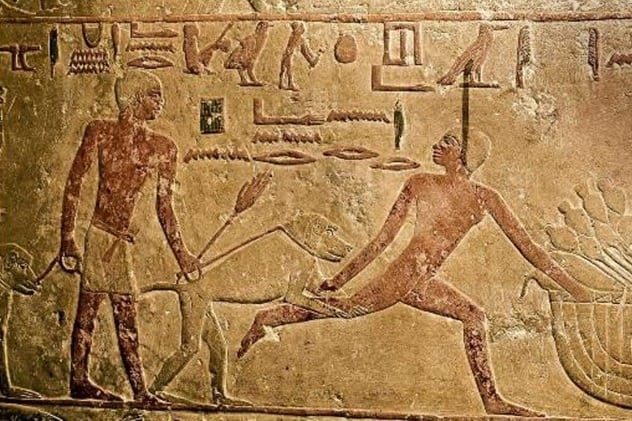
Ideally, a crime would be stopped before it was committed. Most of the police force in ancient Egypt were posted as guards around the cities, keeping an eye on the tombs and the markets to make sure nobody got out of line.
It was a pretty good deterrent. After all, if you got caught breaking the law in ancient Egypt, you might just end the day with an attack monkey on your face.
Guards in ancient Egypt would often have trained animals with them. Most of the time, they were dogs, but more than a few walked around with monkeys on leashes, poised to attack. There’s even a picture of them in action in one servant’s tomb. It shows a thief at a market trying to make his getaway, only to have an attack monkey on a leash tackle his leg, pulling him down to the ground and holding him in place until help arrived.[1]
9 Snitching Was Mandatory By Law

When the detectives were called in, their jobs weren’t easy. Tracking down a criminal with ancient Egyptian technology can be tough to do without a good witness. So, the Egyptian courts made sure they had a witness by laying out serious penalties for failing to report a crime.[2]
When Ramses III was assassinated, the police didn’t just round up the people responsible. They rounded up their butlers and servants, as well. They’d had plenty of chances to overhear the conspiracy, the courts ruled, and their failure to report it made them criminals. As punishment, their ears were cut off—since, as far as the courts were concerned, they weren’t making good use of them, anyway.
But you didn’t have to overlook a plot to overthrow the king to get in trouble. Any failure to report a crime carried heavy consequences, and that was a serious motivator.
One man, after hearing his boss for conspiring to rob a tomb, immediately sent a letter ratting him out. In his letter, he made it clear that it was fear of punishment that motivated him, writing: “I report them to my lord, for it were a crime for one like me to hear such words and conceal them.”
8 Ancient Egypt Had Crime Scene Investigators
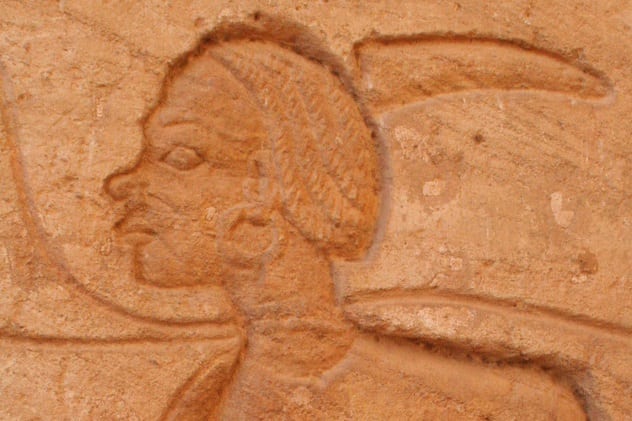
Most investigations started with somebody ratting someone out. A citizen would get in line outside the court to complain about his neighbor, and if it was a serious enough crime, an investigator would be sent out on the job.
These investigations were surprisingly thorough. They didn’t just draw straws or go off a hunch—they would round up suspects, questions witnesses, investigate the crime scene, and even arrange reenactments to test theories about the crime. They even had detailed records of past accusations they could check to monitor peoples’ criminal histories.
When a tomb was robbed during the reign of Ramses IX, he sent out a team of investigators to check every single tomb in the area, just in case the thieves had broken in anywhere else.[3] The team found the tunnel that the thieves had used to break in, measured its width and length, and even made educated guesses on the tools they’d used to get in.
Then they went to work rounding up suspects. They checked the city records for people with a knowledge of mining and a criminal history of robbery, brought them in, and started their investigation there.
7 Suspects And Witnesses Were Beaten Until They Talked
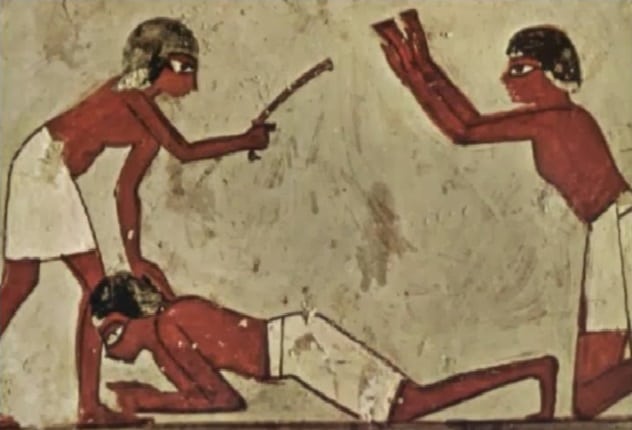
When it came time to get answers, though, the detectives didn’t exactly play nice. They just beat people senseless until they confessed.
They were very cavalier about torturing people. In the court records we have today, they very casually talked about it, with one quickly noting that the “examination was held by beating with a double rod.”
Typically, they’d tie the person to a stake and beat his hands and feet until he gave them the answers they wanted.[4] If he denied all wrongdoing, they’d beat him again—or, as they worded it in one document, the witness would be “further examined with a rod.”
This wasn’t limited to suspects. Sometimes, witnesses who had done nothing wrong would be beaten until they gave their side of the story, especially if they had a reason to protect the accused. There are records of suspects’ sons, slaves, and wives being pulled out of their homes and beaten with a rod until they told the police exactly what they’d seen.
6 Confessions Were Compared To The Evidence

That all might sound barbaric today, but to the Egyptians’ credit, they did realize that beating prisoners could lead to false confessions. That’s why they spent so much time investigating crime scenes. They wanted to make sure these people weren’t just saying anything they wanted to hear.
Criminals’ testimonies would be compared to what they’d found at the crime scenes. Or, if a gang had worked together as a team, they would be separated before they were tortured to make sure their stories were the same.[5] If all the details matched up, they knew they had the right people.
In one case, a man who had confessed to robbing a tomb was blindfolded and carried out to the valley where the robbery had taken place. Once he was there, the vizier who’d questioned him showed him rows upon rows of tombs. The suspect had to show him which one he had robbed so that they could see if he’d point at the right one.
5 Witnesses Had To Describe How They Would Be Mutilated If They Lied

It would have been easy to lie and feign ignorance, of course, but the consequences for lying were often worse than the consequences for the crime itself. In the case above, the coppersmith was warned that if the investigators were satisfied that he had lied, his nose and ears would be cut off, and his body would be stretched apart on the rack.
Threats like these were fairly common in ancient Egypt. When a witness gave a testimony in court, they wouldn’t swear an oath on the Bible like we do today. They’d outline in graphic detail exactly how the court could torture them if they found they’d lied.[6]
The tortures varied. The judges would make them up on the spot, based on how serious they felt the crime was and whether the witness was rich or poor.
One woman was ordered to swear before the court: “Should witnesses be brought against me [ . . . ] I shall be liable to 100 blows.” Another was ordered to declare, “Should we speak falsely, the servants shall be taken away from us.” And a poor field laborer was ordered to tell the truth “on pain of mutilation.”
4 Corruption Was Rampant
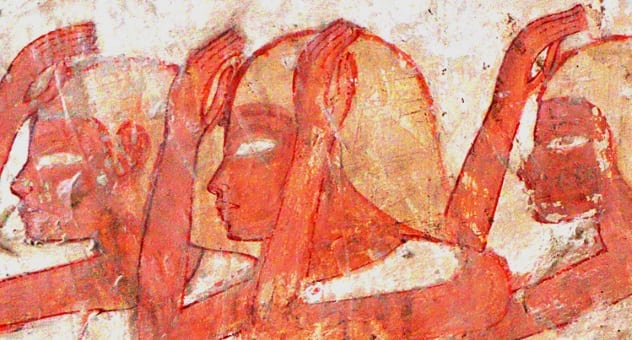
All this investigation would be a lot of work—and there’s a lot of reason to believe that if you weren’t important, the courts didn’t bother doing much about it. There’s every indication that bribery and corruption were rampant in the ancient Egyptian courts, and a wealthy man could get the verdict he wanted by slipping the judge a few golden coins.
An Egyptian writer wrote a song begging the god Amun to help out the poor that gives a little insight into how people saw their legal system. In it, he complains that “the court extorts” the people in it, demanding “silver and gold for the clerks” in exchange for justice.
It was a major political problem. The head of Tutankhamun’s army put the judges in the country on trial for corruption, declaring: “They will not show mercy and be compassionate on the day they will judge the poor.” Those he convicted had their noses cut off and were sent off into exile.
But more than 200 years later, Rameses XI was still struggling with the same problem. When two policemen were accused of framing an innocent man, his general sent an order to “put them in two baskets and they shall be thrown into the water at night.”[7]
He wanted to get rid of the problem before word got out that the police were unjust. The next words of the letter read: “Do not let anybody in the land find out!”
3 Infidelity Could Be Punished By Death
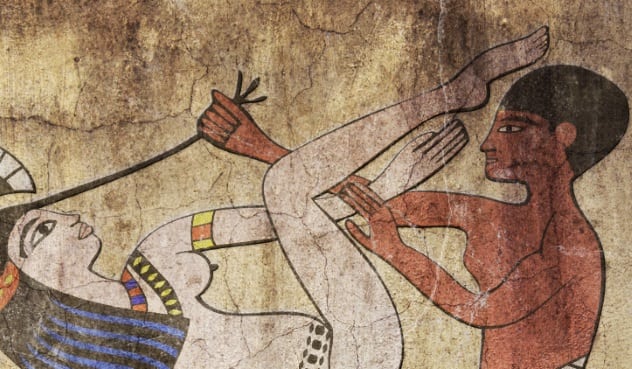
Divorce court was brutal. In ancient Egypt, anyone could take anyone else to court for having an affair. Unlike most of their neighbors, this wasn’t a right reserved for men. They let women sue their husbands for infidelity and divorce. They even let people sue random neighbors in their town who they thought were cheating on their wives.
The punishment was severe. If a woman was found guilty of cheating on her husband, she could have her nose cut off or, in some cases, could even be burned alive. Men, it seems, never got the death penalty for infidelity, but breaking the marriage bonds could still get him 1,000 blows and a writ of divorce.
In one case, an Egyptian official describes catching a mob prowling through the streets, yelling out that they’ve “come to beat up” a man in town who was caught sleeping with a woman who wasn’t his wife. After hearing them out, the official said in a letter, he decided to just let them do it.
“Indeed, [even] if I can repulse them this time, I shall not be able to repulse them again,” he wrote. Instead, he just admonished the girl for sleeping with a married man and ordered his men to let the beating happen and keep it quiet.
“When this letter reaches you,” the letter ends, “do not go to Neferti with this matter.”[8]
2 Even If You Were Innocent, You Were Labeled A Criminal

The overwhelming majority of court cases in ancient Egypt ended with a guilty verdict. There only a handful of records of people leaving the courts as free men, and even then, they weren’t left off free.
One court record describes a man named Amenkhau who was repeatedly beaten by the police. No matter how hard they hit, he kept insisting: “I haven’t seen anything. Whatever I’ve seen you have heard from my mouth.”[9] When no amount of torture would loosen his tongue, they decided he was probably telling the truth and let him go.
He wasn’t totally free, though. Even after he was found innocent, the accusation was permanently kept in the record books with the words “great criminal” next to his name.
That was just how it was done in ancient Egypt. If someone was accused of a crime, they believed, they’d probably done something wrong. And so, even if it was clear that you were innocent, you were labeled a “great criminal” for life.
1 Toward The End, They Just Let A Statue Decide
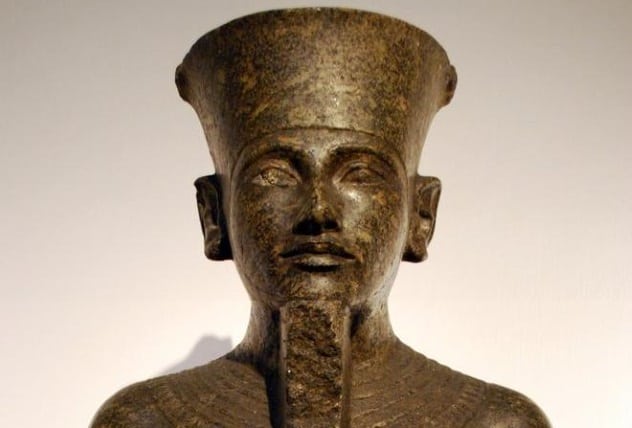
The above entries, at least, are how Egypt laid down the law during their prime. Sometime around 1000 BC, though, they gave up on this whole system of law and justice and settled in for one that was completely and totally insane.
In the last several hundred years of ancient Egypt’s power, the priests of Amun had taken over most of the country, including the legal system.[10] Whenever a charge was filed against someone, they decided the verdict by asking a statue what to do.
The priests would ask a statue of Amun questions and watch how it moved to get their answers. If the statue moved forward, they told people it was saying “yes,” but if it moved backward, it was saying “no.”
Of course, the statue wasn’t really moving on its own. Secretly, they had a man inside or behind it pretending to be a god.
Sometimes, there wouldn’t even be an investigation. A court record from this time shows that in the trial of a man named Thutmose, they just put two tablets in front of the statue and asked Amun to move toward the verdict he wanted. They didn’t just say “guilty” or “not guilty”—the tablets were to decide whether they should bother investigating the case at all.
Thutmose, it seems, had some friends in the priesthood. In the new Egypt ruled by the corrupt priests, he was let go without a single witness being questioned.
For more glimpses into ancient Egyptian life, check out Top 10 Fascinating Facts About Ordinary Ancient Egyptians and 10 Fascinating Ancient Egyptian Cultural Practices.








